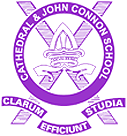IBDP Board
The IB Diploma Programme (DP) is a rigorous, academically challenging and balanced two-year pre-university programme. The highly demanding nature of the curriculum requires students to have a strong academic background and exceptional work habits. The curriculum is made up of the DP core and six subject groups.
IB Mission Statement
The International Baccalaureate aims to develop inquiring, knowledgeable and caring young people who help to create a better and more peaceful world through intercultural understanding and respect. To this end the organization works with schools, governments and international organizations to develop challenging programmes of international education and rigorous assessment. These programmes encourage students across the world to become active, compassionate and lifelong learners who understand that other people, with their differences, can also be right.For more details visit below links :
1. Discover more about the History of IB here
2. Read about IB Learner Profile here
3. Read about Education for a Better World here
4. Click here to access the IBO & IBDP Brochure
5. Click here to access the School Brochure
6. Click here to access the Academic Integrity Policy
7. Click here to access the Admission Policy
8. Click here to access the Inclusion Policy
Diploma Programme Model
| Group | Subjects |
|---|---|
| Group 1: Studies in Language and Literature | English Language and Literature (HL, SL) |
| Group 2: Language Acquisition | Hindi B (SL) French B French ab initio Spanish ab initio |
| Group 3: Individuals and Societies | Economics (HL, SL) Psychology (HL, SL) Business Management (HL, SL) History (HL, SL) Global Politics (HL, SL) Environmental Systems and Societies (Interdisciplinary) |
| Group 4: Sciences | Physics (HL, SL) Chemistry (HL, SL) Biology (HL, SL) Computer Science (HL, SL) Environmental Systems and Societies (Interdisciplinary) |
| Group 5: Mathematics | Mathematics: Analysis and Approaches (HL, SL) Mathematics: Applications and Interpretation (HL, SL) |
| Group 6: The Arts | Visual Arts |
IBDP Results

Frequently Asked Questions
Students qualify on the basis of their academic record in senior school, among other things. Additionally, they may be required to appear for an entrance test and/or interview.
The rigour of the IBDP, with its emphasis on independent study and research skills, in addition to the CORE which includes the Extended Essay, Theory of knowledge and Creativity, Activity, Service (CAS), can give DP students an initial edge over students from other Curricula especially in the first year of university education abroad.
For further information, please go to https://www.ibo.org/benefits/why-the-ib-is-different/
The IBDP is recognised the world over as an extremely rigorous programme and at Cathedral it comes with a vibrant House System and various national and international competitions and programmes. Thus, the AP is neither required nor recommended for students of the IBDP.
Grades are calculated on the basis of the student’s progress over two exams in DP 1, one exam in DP 2, in addition to all other Internal and External Assessment components completed till October, of DP 2. The potential of the student for improvement is also taken into consideration. Reviewed grades may also be sent on further assessments completed by January, DP 2.
The School provides a host of avenues for CAS, including a variety of in-house Creativity Clubs, sports facilities, and many service centres.
Students of the IGCSE definitely have an initial advantage over ICSE students in terms of their thinking skills and independent work. However, the school offers bridge courses during the summer vacation and conducts our own orientation during the first month of DP 1 in order to ease the initiation of students from other Indian curricula into the DP.
All IB teachers of the school undergo mandatory training in the subjects they teach.
The IBDP is recognised the world over as an extremely rigorous programme and at Cathedral it comes with a vibrant House System and various national and international competitions and programmes.
Not at present.
Yes. Studying one science is mandatory in the DP.
Yes, if the student’s preferred college insists on three sciences. There are two options: To take the additional science subject as the seventh subject. The diploma certificate will include only six subjects and the seventh subject will be an extra certificate. To apply for a non-regular diploma. For both options, information must be provided at the time of admission.
You are given three weeks to try out different subjects, at the end of which you must give your final subject choice.
IBDP has been recognized as an entry level qualification for all universities in India. The entrance exams for certain disciplines, however, are held in the month of May, during IBDP exams.
No. However, the school offers bridge courses during the summer vacation and conducts our own orientation during the first month of DP 1 in order to ease the initiation of students from other Indian curricula into the DP.
No. The school’s bridge course offers exposure to the different Math courses offered.
The orientation weeks will include daily math classes with teachers introducing both the courses and guiding the students through the requirements of both. At the end of the orientation period, the students can choose one of the options.
The IB programme is a comprehensive one which covers all aspects of student activities. The student may choose to pursue any activity beyond CAS as per his/her interest and availability of time.
Yes. Details of the requirements with relevant documents must be submitted at the time of admission.
The extended essay offers the opportunity for IB students to investigate a topic of special interest, usually one of the student's six DP subjects or an interdisciplinary topic (World Studies), and acquaints them with the independent research and writing skills expected at university. It is intended to promote high-level research and writing skills, intellectual discovery and creativity - resulting in approximately 40 hours of work. It provides students with an opportunity to engage in personal research on a topic of their choice, under the guidance of a supervisor.
This leads to a major piece of formally presented, structured writing of no more than 4,000 words, in which ideas and findings are communicated in a reasoned and coherent manner, appropriate to the subject and three mandatory reflections of the process have to be undertaken.
The interdisciplinary TOK course is designed to develop a coherent approach to learning that transcends and unifies the academic areas and encourages appreciation of other cultural perspectives. The theory of knowledge course is in part intended to encourage students to reflect on the huge cultural shifts worldwide around the digital revolution and the information economy. The extent and impact of the changes vary greatly in different parts of the world, but everywhere their implications for knowledge are profound. Theory of knowledge encourages critical thinking about knowledge itself and aims to help young people make sense of what they encounter. The following 12 concepts have particular prominence within, and thread throughout, the TOK course: evidence, certainty, truth, interpretation, power, justification, explanation, objectivity, perspective, culture, values and responsibility. The students also study the following areas of knowledge: TOK activities and discussions aim to help students discover and express their views on knowledge issues. The course encourages students to share ideas with others and to listen and learn from what others think. In this process students' thinking and their understanding of knowledge as a human construction are shaped, enriched and deepened. Assessment : Internal assessment 33% The Exhibition - 10 marks Students are required to create an exhibition of three objects that connect to one of the 35 "IA prompts" provided in the syllabus. The exhibition comprising three objects, or images of objects, is accompanied with a written commentary on each object. External assessment - 67% Essay on a prescribed title -10 marks
The syllabus focuses on the core theme of knowledge and knower and the optional themes are as follows:
Connections may be made between knowledge encountered in different Diploma Programme subjects, in CAS experience or in extended essay research; distinctions between different kinds of knowledge may be clarified.
One essay on a title chosen from a list of six titles prescribed by the IB for each examination session. The prescribed titles will be released on My IB September prior to submission for May session schools. The maximum length for the essay is 1,600 words.
Creativity, activity, service is at the heart of the Diploma programme, involving students in a range of activities that take place alongside their academic studies throughout the Programme. The component's three strands, often interwoven with particular activities, are characterized as follows: Creativity, activity, service (CAS) encourages students to be involved in activities as individuals and as part of a team that take place in local, national and international contexts. Creativity, activity, service enables students to enhance their personal and interpersonal development as well as their social and civic development, through experiential learning, lending an important counterbalance to the academic pressures of the rest of the Programme. It should be both challenging and enjoyable - a personal journey of self-discovery that recognizes each student's individual starting point. Activities should provide:
